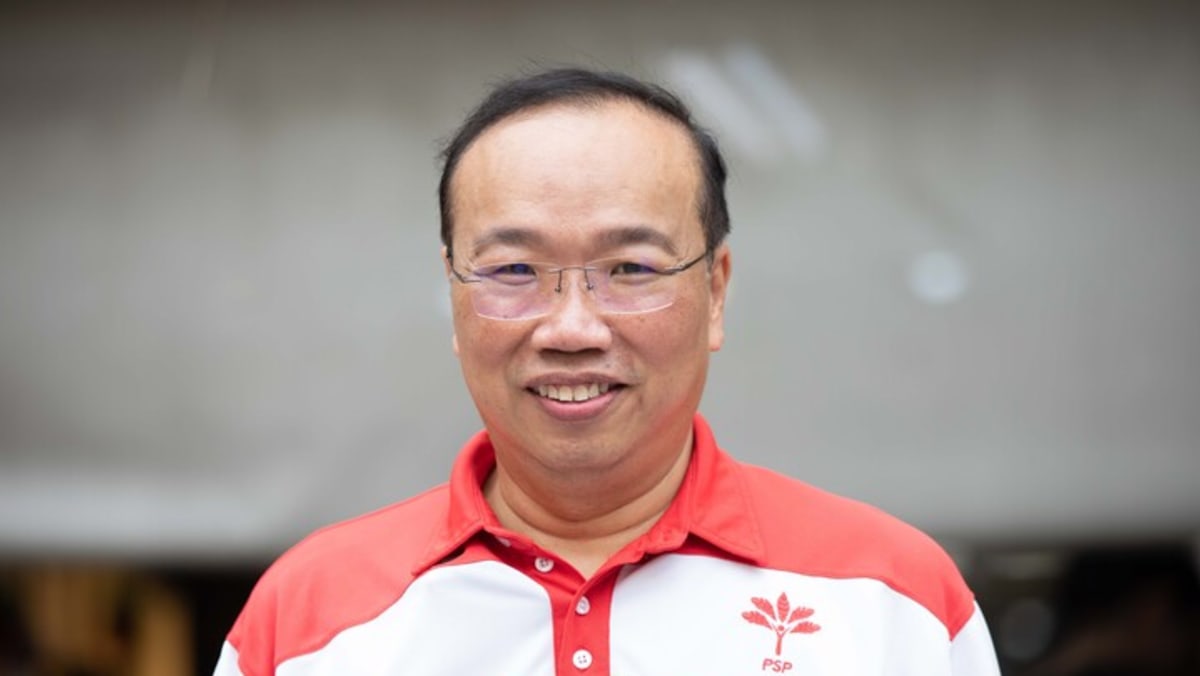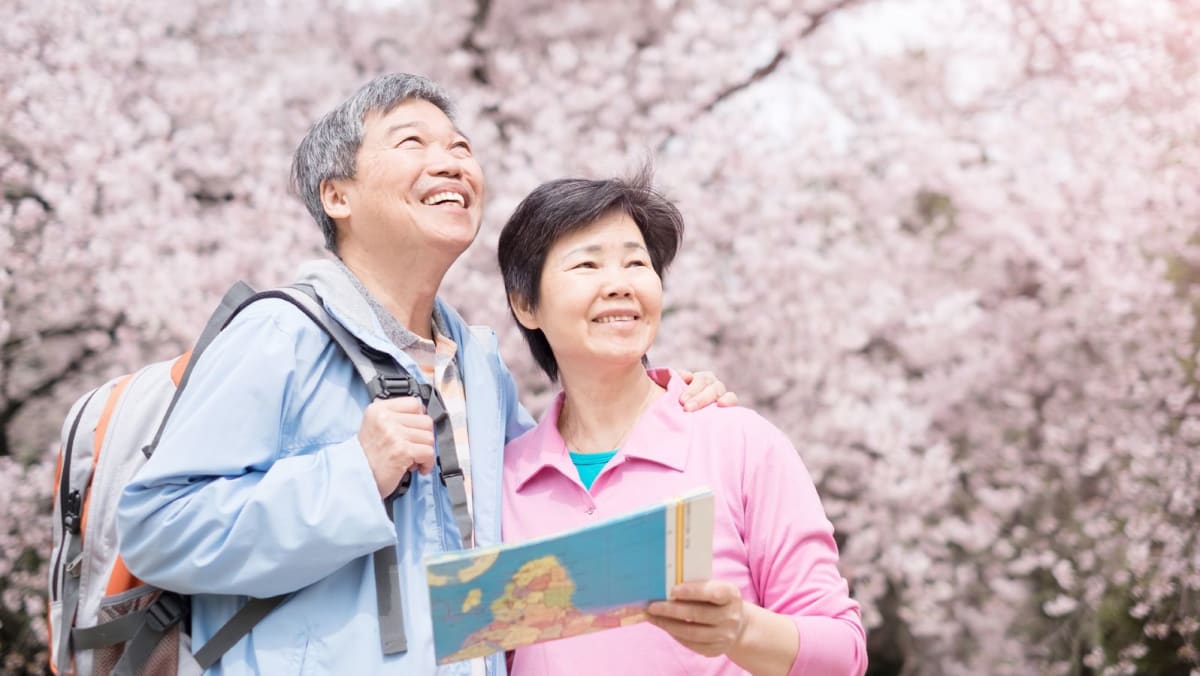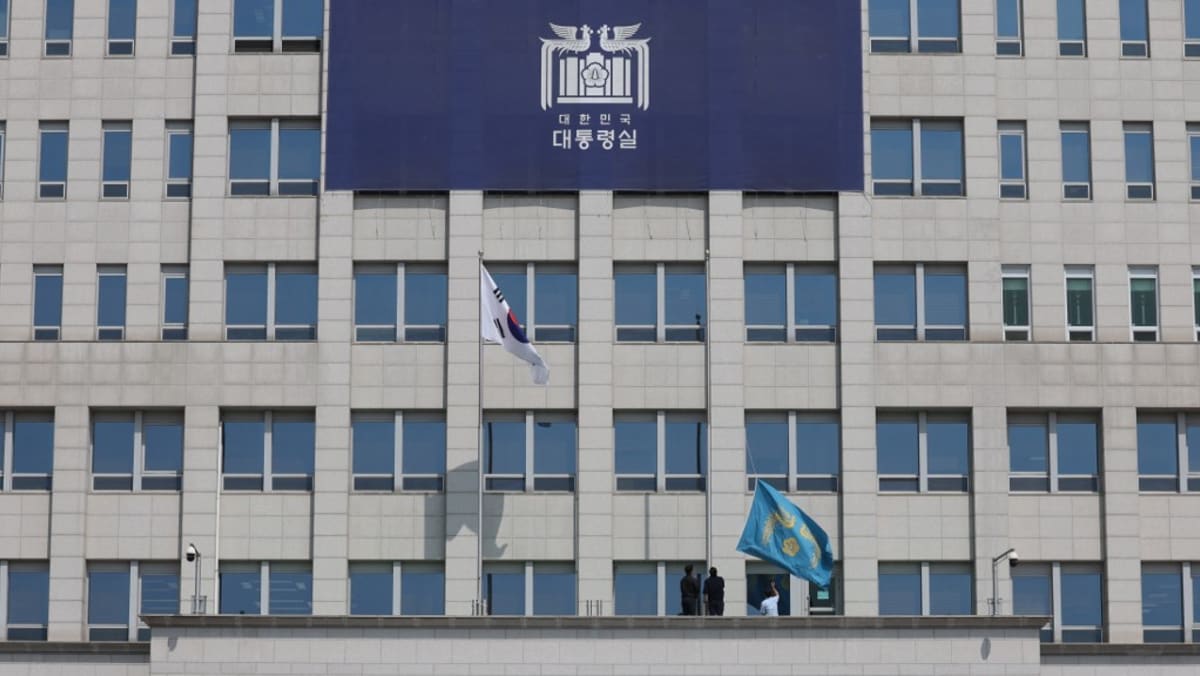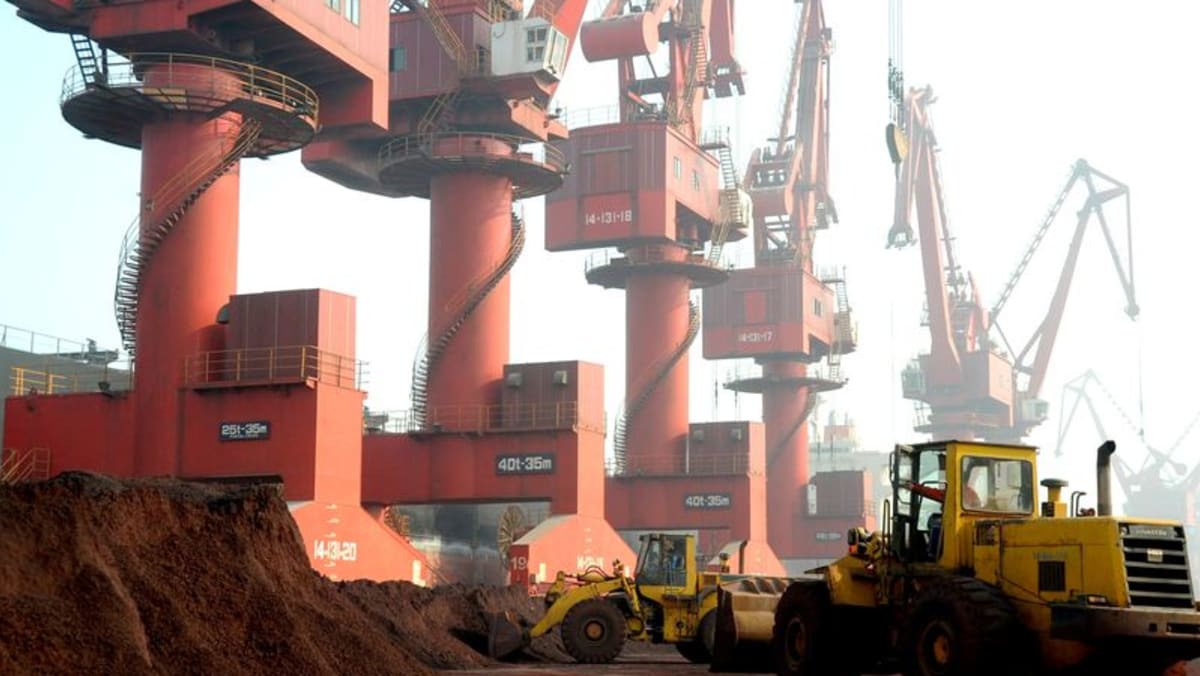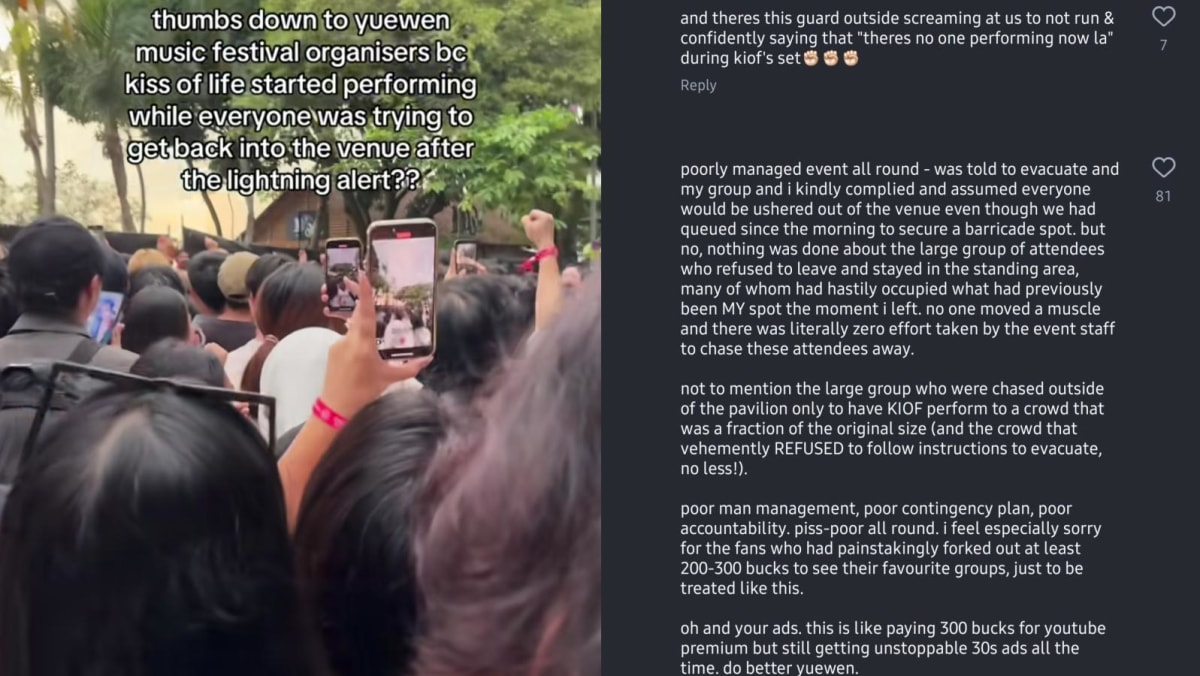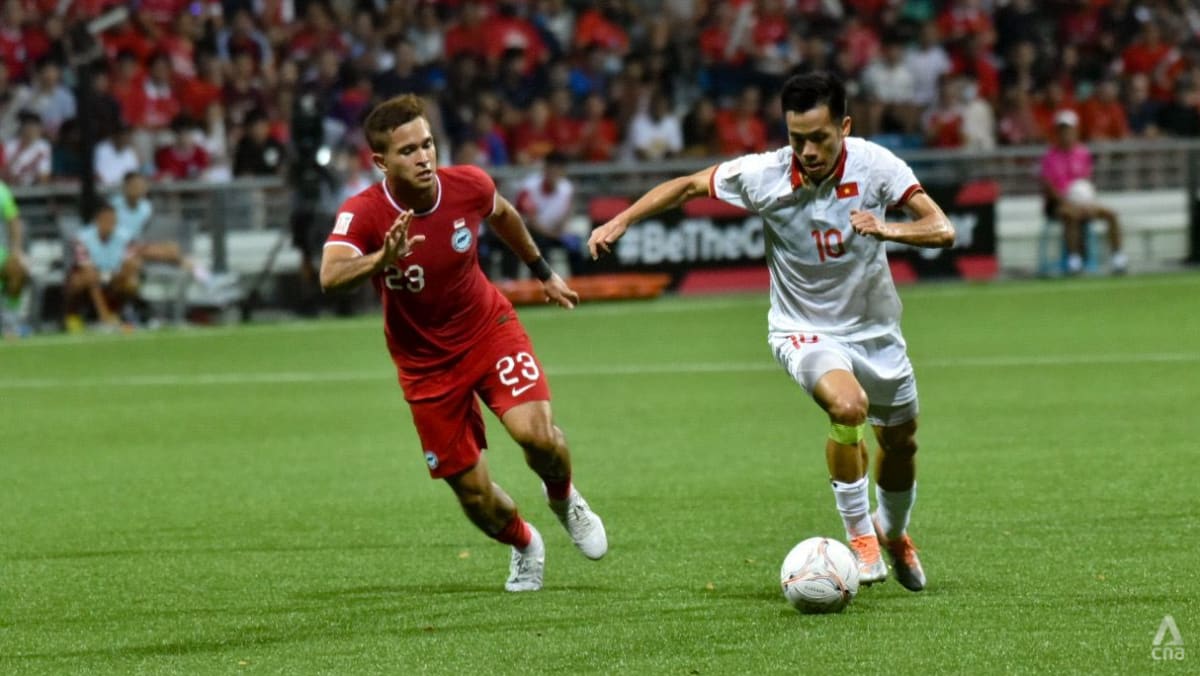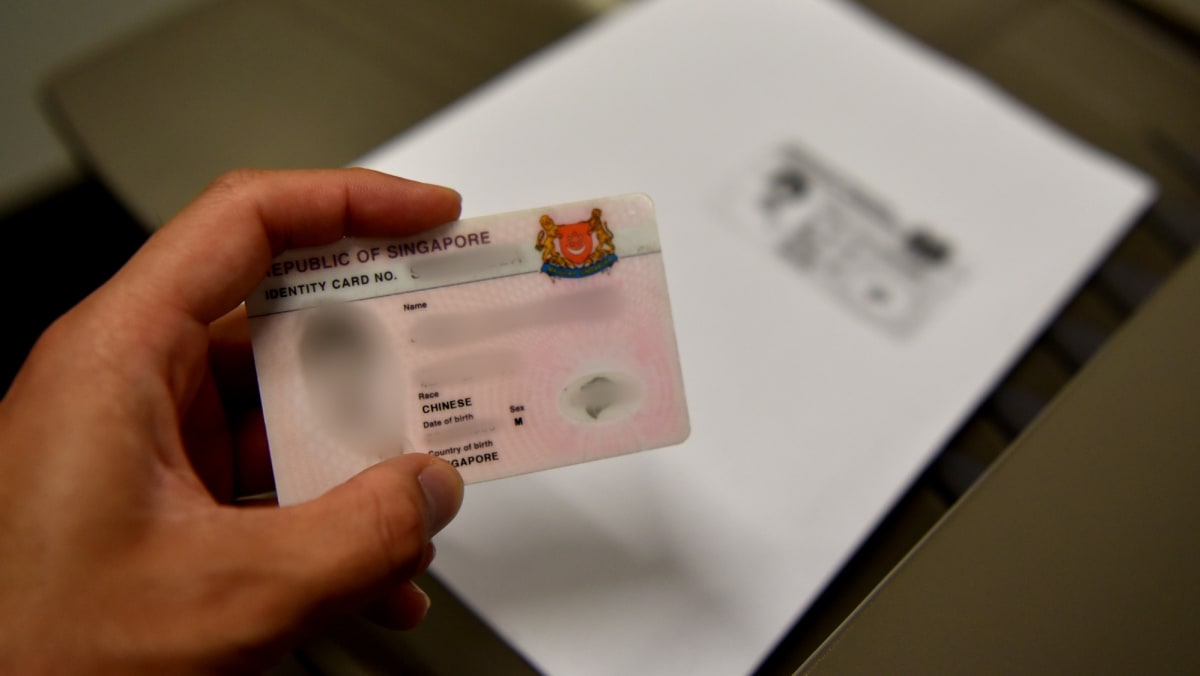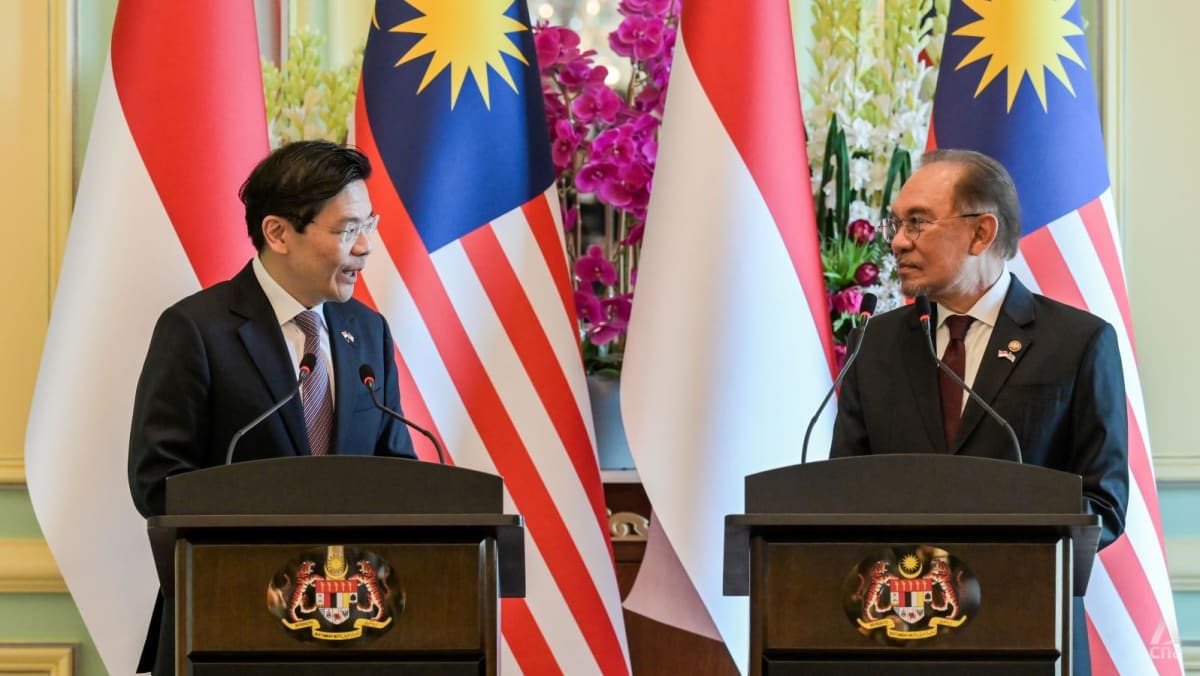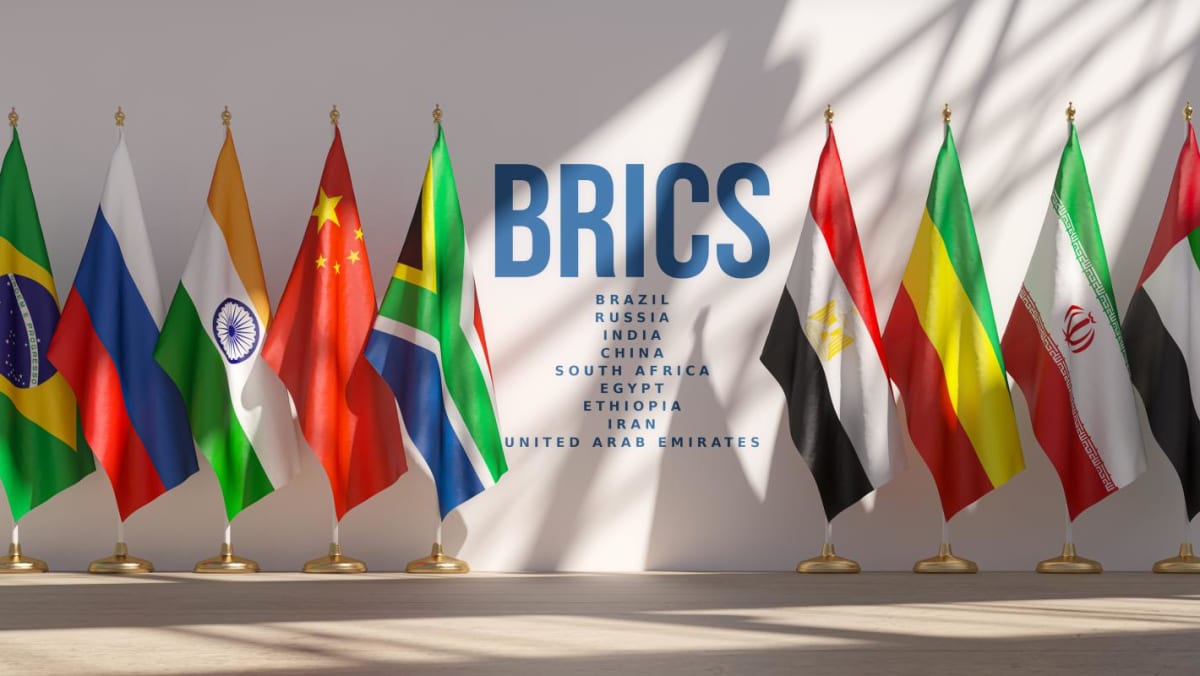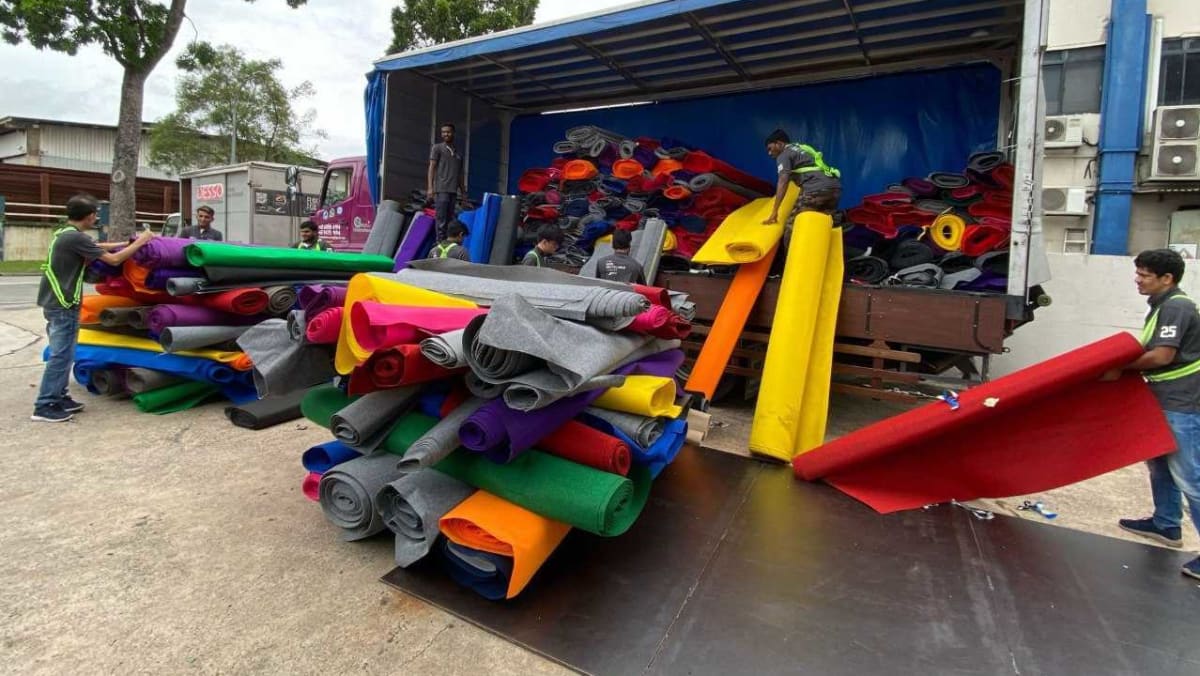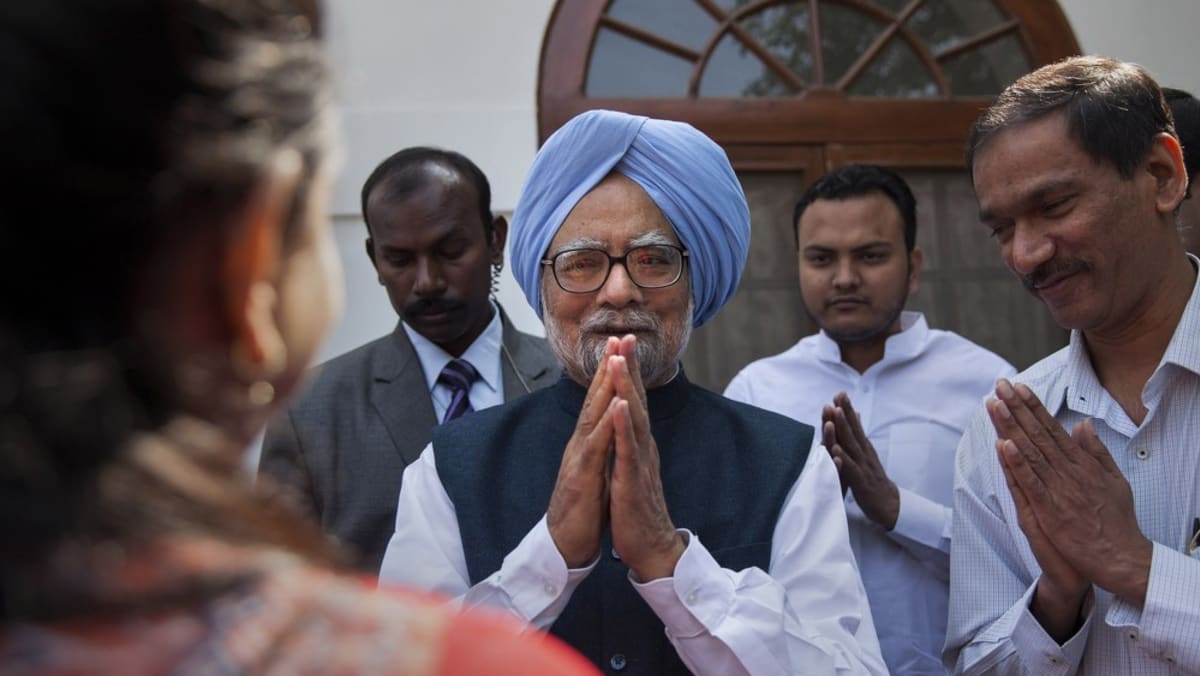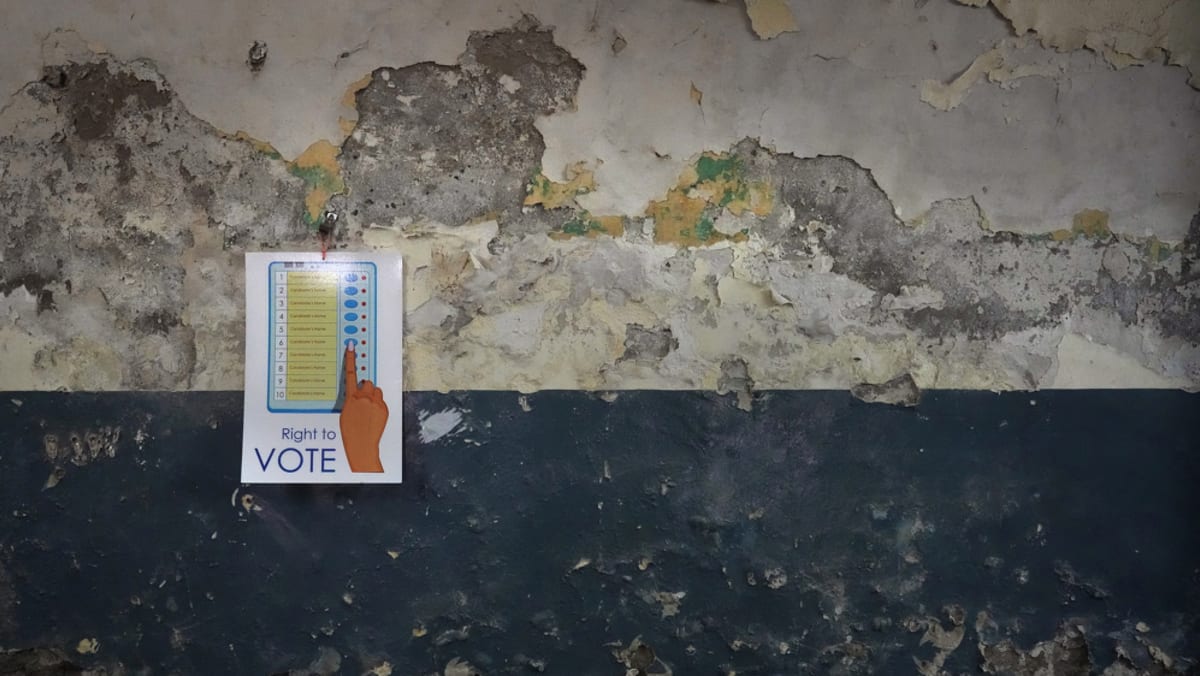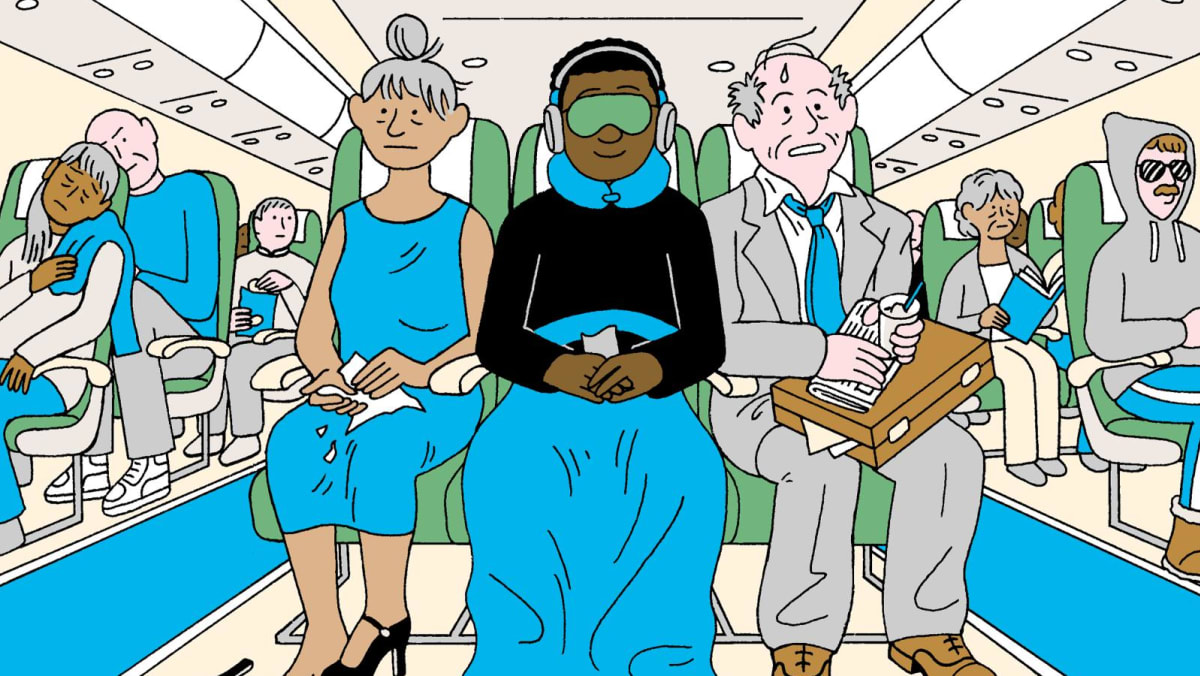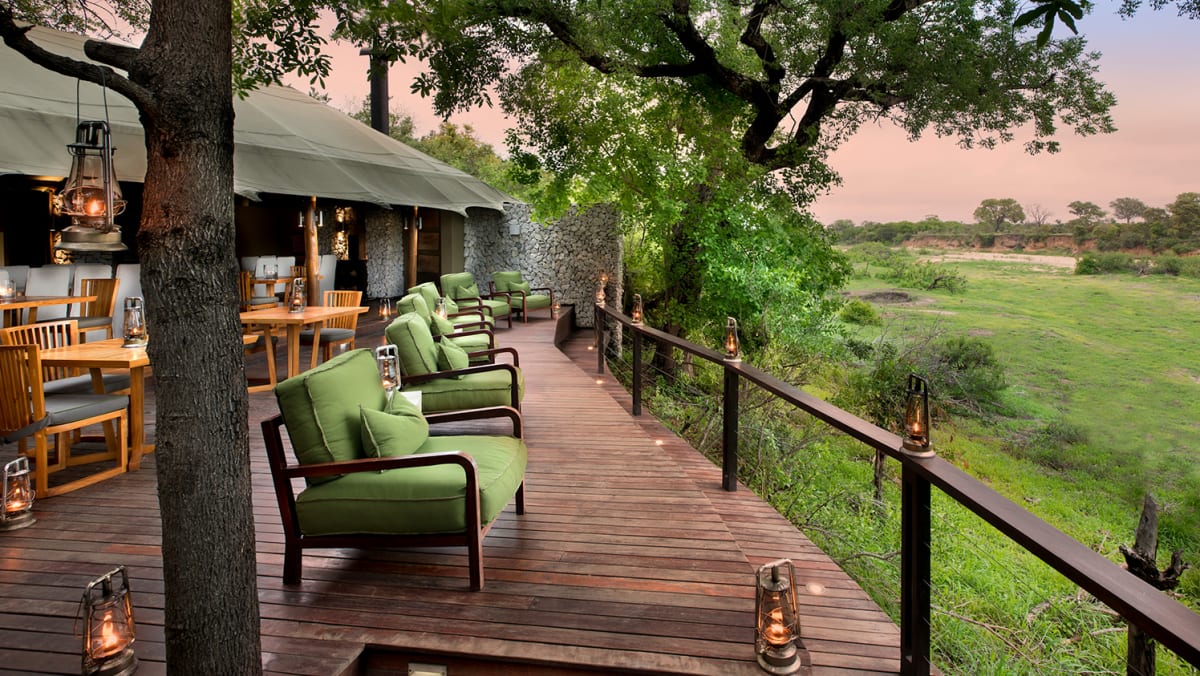KUALA LUMPUR: Malaysia and Singapore have agreed on an “indicative timeline" on determining the precise location of their maritime boundaries in the Johor Strait, with joint technical works starting this year.
On a separate issue of airspace management, they also agreed that delegation arrangements for the provision of air traffic services over Southern Peninsular Malaysia do not affect sovereignty.
These were what Malaysia Prime Minister Anwar Ibrahim and Singapore Prime Minister Lawrence Wong agreed on over the two outstanding bilateral issues, according to a joint statement released in the early hours of Wednesday (Jan 8).
The leaders’ statement came after Tuesday’s 11th Malaysia-Singapore Leaders’ Retreat in Putrajaya, where the leaders said their countries were committed to finding “durable, win-win” outcomes on such bilateral issues.
On the maritime issue where leaders said both sides had made “good progress”, the boundaries are being looked at by a technical working group between both countries.
The group is working to “delimit precisely” the territorial waters boundary in accordance with the Straits Settlements and Johore Territorial Waters Agreement 1927 (1995 Agreement) and has met four times since June 2023.
It held its fourth meeting held in Singapore on Nov 11 and Nov 12 last year, and both countries had agreed to and signed the terms of reference and scope of works for the technical working group.
“In this regard, both countries also agreed to an indicative timeline with joint technical works starting in 2025,” the joint statement said.
“Both leaders urged the technical working group to continue the effort in determining the actual location of the international boundary in the Johor Strait under the 1995 Agreement.”
The maritime dispute between Malaysia and Singapore came to a head in 2018 when Malaysia unilaterally extended its Johor Bahru Port Limits off Tanjung Piai, overlapping with Singapore's port limits off Tuas.
Singapore protested Malaysia's extension in October 2018, saying it led to repeated incursions by Malaysian government vessels into Singapore waters. The Republic later extended its own port limits in response, saying this was still in its territorial waters.
In 2019, both sides agreed to suspend the extensions and revert to former limits. They agreed to suspend and not authorise all commercial activities in the area, and not to anchor any government vessels there.
They also agreed to set up a committee to study the legal and operational issues relating to the maritime dispute and provide a basis for negotiations.
AIRSPACE MANAGEMENT
On the airspace issue, Mr Anwar and Mr Wong said they reaffirmed their commitment to review the delegation arrangements for the provision of air traffic services over Southern Peninsular Malaysia.
These arrangements were recommended and approved by the International Civil Aviation Organization (ICAO) in 1973 and implemented through the Operational Letter of Agreement between Kuala Lumpur and Singapore Area Control Centres concerning Singapore Arrivals, Departures and Overflights in 1974.
“The leaders agreed that the delegation arrangements do not affect sovereignty and that the review should be in accordance with ICAO’s requirement for safe and efficient air traffic management as well as to accommodate both countries’ current and future operational needs,” the joint statement said.
“Both leaders tasked the Transport Ministers to guide the civil aviation authorities to further progress the discussions, and to meet regularly to exchange views on issues of shared interest.”
In 2018, Malaysia objected to new landing procedures proposed for Singapore’s Seletar Airport, saying this would affect development and shipping operations in Pasir Gudang, Johor. It also imposed a “permanent restricted area” in the airspace over Pasir Gudang, effectively introducing a no-fly zone in the approach path to Seletar Airport.
Singapore's Ministry of Transport responded by saying that the new landing procedures for Seletar Airport would not impose height restrictions. The Republic also said it respects Malaysia's sovereignty and that cross-border airspace management "is not incompatible with sovereignty".
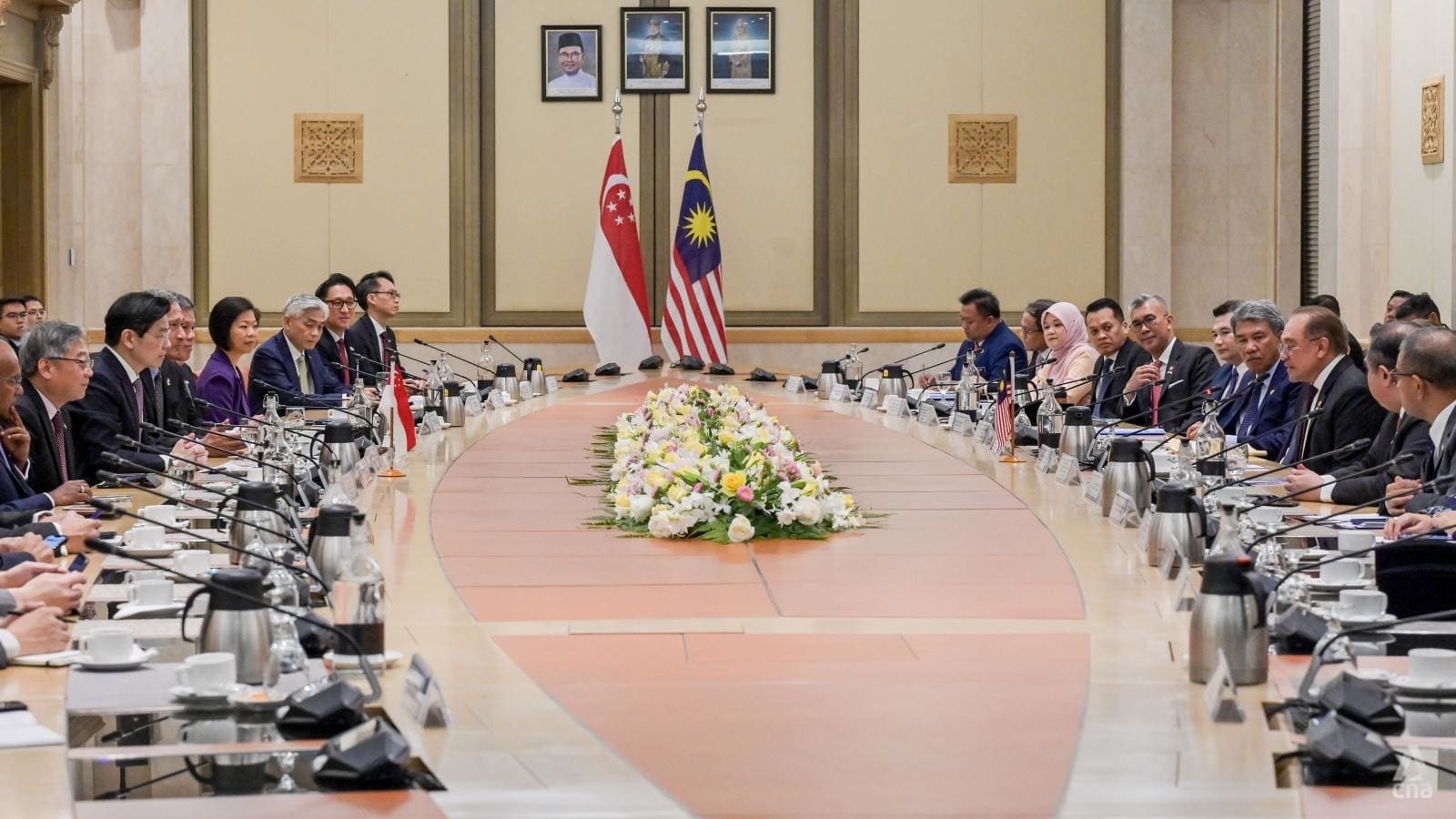 Singapore Prime Minister Lawrence Wong, Malaysia Prime Minister Anwar Ibrahim and their delegations meet at the Prime Minister’s Office building in Putrajaya on Jan 7, 2025. (Photo: CNA/Fadza Ishak)
Singapore Prime Minister Lawrence Wong, Malaysia Prime Minister Anwar Ibrahim and their delegations meet at the Prime Minister’s Office building in Putrajaya on Jan 7, 2025. (Photo: CNA/Fadza Ishak)
While both sides agreed to suspend their moves in January 2019, Malaysia transport minister Anthony Loke said at a joint press conference with his then-Singaporean counterpart Khaw Boon Wan in April that year that Malaysia already has the capabilities to manage its own airspace.
"That is our sovereign airspace which has been a long-standing issue and we wish to manage our own airspace,” he was quoted as saying by the Malay Mail.
"We think that after 45 years of delegating that airspace to Singapore, it’s high time right now for us to review the agreement.”
At the 10th leaders’ retreat held in Singapore in October 2023, Mr Anwar and then Singapore Prime Minister Lee Hsien Loong welcomed Singapore’s withdrawal of its instrument landing system procedures for Seletar Airport and Malaysia’s suspension of its permanent restricted area over Pasir Gudang “indefinitely”.
They also noted that a high-level committee had been set up to review the Operational Letter of Agreement between Kuala Lumpur and Singapore Area Control Centres concerning Singapore Arrivals, Departures and Overflights signed in 1974.
PEDRA BRANCA, MIDDLE ROCKS AND SOUTH LEDGE
The leaders also gave an update on the implementation of the International Court of Justice (ICJ) judgment on Pedra Branca, Middle Rocks and South Ledge, islets at the eastern entrance to the Singapore Strait.
Mr Anwar and Mr Wong said the attorneys-general of Malaysia and Singapore had submitted a joint report on the issue, and commended the efforts made by both delegations in a joint meeting on Mar 14, 2019, on the implementation of the ruling and boundary delimitation.
“Both sides remain committed to resolve the outstanding maritime boundary issues between the two countries,” they said.
In 2008, the ICJ ruled that Pedra Branca belongs to Singapore while Middle Rocks belongs to Malaysia. It also ruled that South Ledge belongs to the state in the territorial waters of which it is located.
Malaysia has protested Singapore’s decision to develop Pedra Branca, saying this could affect the environment and Malaysia’s borders with Singapore. It has also launched a royal commission of inquiry into its then-government’s decision in 2018 to drop an application to review the ICJ ruling.
In response, Singapore has said that its development works on Pedra Branca are needed to improve maritime safety and security as well as search and rescue capabilities in the area, although it had agreed to pause the works to listen to Malaysia’s concerns in the spirit of mutual cooperation and good faith.
At the previous leaders' retreat in Singapore, Mr Anwar said he had Mr Lee's “agreement to hear our arguments in the near future”.
In a written parliamentary reply on Tuesday, Singapore’s Minister for Foreign Affairs Vivian Balakrishnan also said that Malaysia’s royal commission of inquiry is an internal matter for Malaysia, and should not affect good bilateral relations between both countries.
JOHOR-SINGAPORE SPECIAL ECONOMIC ZONE
On the Johor-Singapore Special Economic Zone (JS-SEZ), Mr Anwar and Mr Wong said on Wednesday that the JS-SEZ is a “key milestone” in Malaysia-Singapore relations.
The zone will “enable both countries to tap on their complementary value propositions to drive innovation, enhance productivity, compete for global investments, create jobs, and bolster economic growth”, they said.
To achieve the JS-SEZ’s goals, Malaysia’s Ministry of Economy and Singapore’s Ministry of Trade and Industry said in a joint statement on Wednesday that both countries have agreed to “leverage complementary value propositions”.
“Under this agreement, Malaysia and Singapore will work together on the basis of mutual benefit to strengthen economic co-operation, facilitate cross-border movement of people and goods, improve the ease of doing business, and support talent development in the JS-SEZ to better compete for global investments,” the statement said.
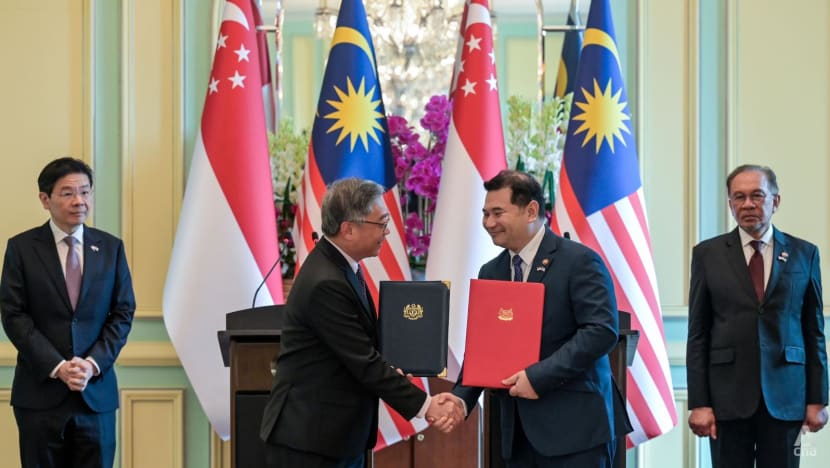 Exchange of MoU for Johor-Singapore Special Economic Zone between Singapore Deputy Prime Minister Gan Kim Yong and Malaysia's Economy Minister Rafizi Ramli witnessed by both Singapore and Malaysia’s Prime Minister at the Prime Minister’s office. (Photo: CNA/Fadza Ishak)
Exchange of MoU for Johor-Singapore Special Economic Zone between Singapore Deputy Prime Minister Gan Kim Yong and Malaysia's Economy Minister Rafizi Ramli witnessed by both Singapore and Malaysia’s Prime Minister at the Prime Minister’s office. (Photo: CNA/Fadza Ishak)
The JS-SEZ, which was first mooted in July 2023, will cover an area “defined precisely” in the agreement and include the Iskandar Development Region and Pengerang on the south-eastern top of Johor, the ministries said.
Malaysia has indicated that the JS-SEZ will span 3,571 sq km and comprise nine “flagship areas” catering to different economic sectors.
Besides the Iskandar region and Pengerang, they are the Johor Bahru city centre, Tanjung Pelepas-Tanjung Bin, Pasir Gudang, Senai-Skudai, Sedenak, Forest City, and Desaru.
Malaysia and Singapore will promote and facilitate investments in 11 economic sectors: Manufacturing, logistics, food security, tourism, energy, the digital economy, the green economy, financial services, business services, education, and health.
These investments will enhance economic complexity, promote and advance digital vibrancy and technology adoption, and achieve net-zero aspirations in the JS-SEZ, the ministries said.
Malaysia and Singapore will also facilitate the development of renewable energy projects to accelerate renewable energy trading with each other, and consider the development of new areas for free zones and facilitating the application for licensed manufacturing warehouses in the JS-SEZ, they added.
 Singapore Prime Minister Lawrence Wong and Malaysia Prime Minister Anwar Ibrahim at the Malaysia-Singapore Leaders' Retreat in Putrajaya. (Photo: CNA/Fadza Ishak)
Singapore Prime Minister Lawrence Wong and Malaysia Prime Minister Anwar Ibrahim at the Malaysia-Singapore Leaders' Retreat in Putrajaya. (Photo: CNA/Fadza Ishak)
In a joint statement on Wednesday, Malaysia’s Finance Ministry and the Johor state government said the tax incentive package for the JS-SEZ is designed to drive high-value investments into Johor, tailored to meet the evolving needs of global and domestic investors.
Effective Jan 1, these include a special corporate tax rate of 5 per cent for up to 15 years for companies undertaking new investment in qualifying manufacturing and services activities, such as artificial intelligence and quantum computing supply chain, medical devices, and aerospace manufacturing.
“Knowledgeable workers” employed in the JS-SEZ will also get a special personal tax rate of 15 per cent for 10 years, while additional tailor-made incentives will be allocated to businesses operating in certain flagship areas in JS-SEZ.
Further details on the tax incentives and the flagship zones will be announced in “due course”, the statement said.
Singapore and Malaysia will work also together to attract talents aligned with industry needs to work in the JS-SEZ, the ministries from both countries said, including by enhancing industry-ready skills training and education programmes and pursuing these initiatives in collaboration with the Johor Talent Development Council and other relevant institutions.
These include partnerships to strengthen cooperation in technical and vocational education and training initiatives to meet industry demands, such as Memorandums of Understanding (MOUs) between Singapore Polytechnic and the Federation of Malaysian Manufacturers, and Singapore’s ITE Education Services and the Johor Skills Development Centre.
Mr Anwar and Mr Wong said in their joint statement on Wednesday that both leaders recognised the promising prospects for further collaboration on the development of Iskandar Malaysia, particularly with the establishment of the JS-SEZ.
The zone will lay the foundation for a “dynamic and sustainable business ecosystem”, they said, reaffirming ongoing discussions to refresh the Joint Ministerial Committee for Iskandar Malaysia platform to better support the ambition and implementation of the JS-SEZ, while reinforcing bilateral cooperation on other fronts, such as transport and environment.
Malaysia, Singapore boost cooperation in other areas
At the leaders’ retreat, Malaysia and Singapore also signed MOUs to cooperate in the areas of higher education, urban development, family development, carbon capture and storage, carbon credits, as well as preventing and combatting transnational crimes.
In addition, both countries signed a Letter of Intent for the Malaysia-Singapore English Volunteers Programme, in a follow-up to Malaysia Prime Minister Anwar Ibrahim’s suggestion during his first meeting with Singapore counterpart Lawrence Wong in June last year.
Malaysia’s Yayasan Guru Tun Hussein Onn and the Singapore International Foundation are in discussions to conduct a pilot programme later this year. Under the programme, volunteers from Singapore will assist with the teaching of the English language in selected schools and states in Malaysia.
HIGHER EDUCATION
Singapore and Malaysia will further strengthen cooperation in the field of higher education, and pave the way for more extensive institutional partnerships, people-to-people exchanges, and information sharing between Malaysia and Singapore.
Under this MOU, both parties will encourage and promote higher education cooperation between institutes of higher learning in the areas of staff and student exchanges, exchange of information and experiences, staff training programmes, exchange of scholarships, and the organisation of joint activities and programmes.
URBAN DEVELOPMENT
The MOU on urban development aims to strengthen exchanges in urban development between Singapore’s Ministry of National Development and Malaysia’s Ministry of Housing and Local Government.
Under this MOU, officials from both ministries will deepen mutual learning in areas such as land use planning to create sustainable and liveable cities, provision of good quality and smart homes, as well as municipal management. Knowledge-sharing on these topics will be done through initiatives such as study visits and technical exchanges.
FAMILY DEVELOPMENT
The MOU on cooperation in the fields of social welfare, women and persons with disabilities’ empowerment, family, children and community development aims to strengthen and promote social development cooperation between Singapore and Malaysia, given both countries’ “mutual interests and similar values” in areas pertaining to the family, Singapore’s Ministry of Social and Family Development said.
Areas of collaboration will include fostering relationships between government institutions and organisations involved in social development, exchanging information on policies and programmes, institutional visits for networking and technical cooperation, and joint workshops, seminars and training programs to build human capacity in social work and community development.
CARBON CAPTURE AND STORAGE
Under this MOU, Singapore and Malaysia will engage in bilateral discussions to enable cross-border carbon capture and storage (CCS) and discuss components of a legally binding government-to-government agreement.
Both countries will also share best practices and information on CCS, and facilitate industry-led research projects where relevant. A joint committee comprising representatives from both sides will also be established to facilitate the implementation of the MOU.
CCS is the process of capturing, transporting and permanently storing carbon dioxide thereby avoiding releasing emissions into the atmosphere. The process could decarbonise hard-to-abate emissions for which there are no ready alternative solutions, in sectors such as energy and chemicals, power and waste.
CARBON CREDITS
The signing of the MOU to collaborate on carbon credits under Article 6 of the Paris Agreement signals Singapore’s and Malaysia’s intent to pursue voluntary cooperation to achieve emissions reduction targets set out in their Nationally Determined Contributions (NDC), Singapore’s Ministry of Trade and Industry said.
Under the MOU, Singapore and Malaysia will work towards a legally binding Implementation Agreement which establishes a bilateral framework for the generation and international transfer of correspondingly adjusted carbon credits aligned with Article 6 of the Paris Agreement.
The Implementation Agreement will enable the development of carbon credits projects that unlock additional mitigation potential, promote sustainable development and deliver benefits to local communities.
TRANSNATIONAL CRIMES
Under the MOU, Singapore and Malaysia will enhance cooperation in combatting transnational crimes such as drug trafficking, terrorism, cybercrime and scams, including cyber-enabled scams.
The home affairs ministries of both countries will also set up a joint working committee to identify and develop activities, policies or programmes to be conducted under the MOU framework.
Collapse Expand
Mr Anwar and Mr Wong witnessed the exchange of several MOUs in areas like education, urban development and transport at their retreat on Tuesday.
“The leaders encouraged their respective officials to take prompt follow-up actions under the MOUs to ensure that the commitments made are translated into tangible outcomes,” they said in Wednesday’s joint statement.
“Both leaders expressed confidence that by maintaining a proactive and results-oriented approach, the initiatives outlined in the multifaceted MOUs will be successfully implemented.”


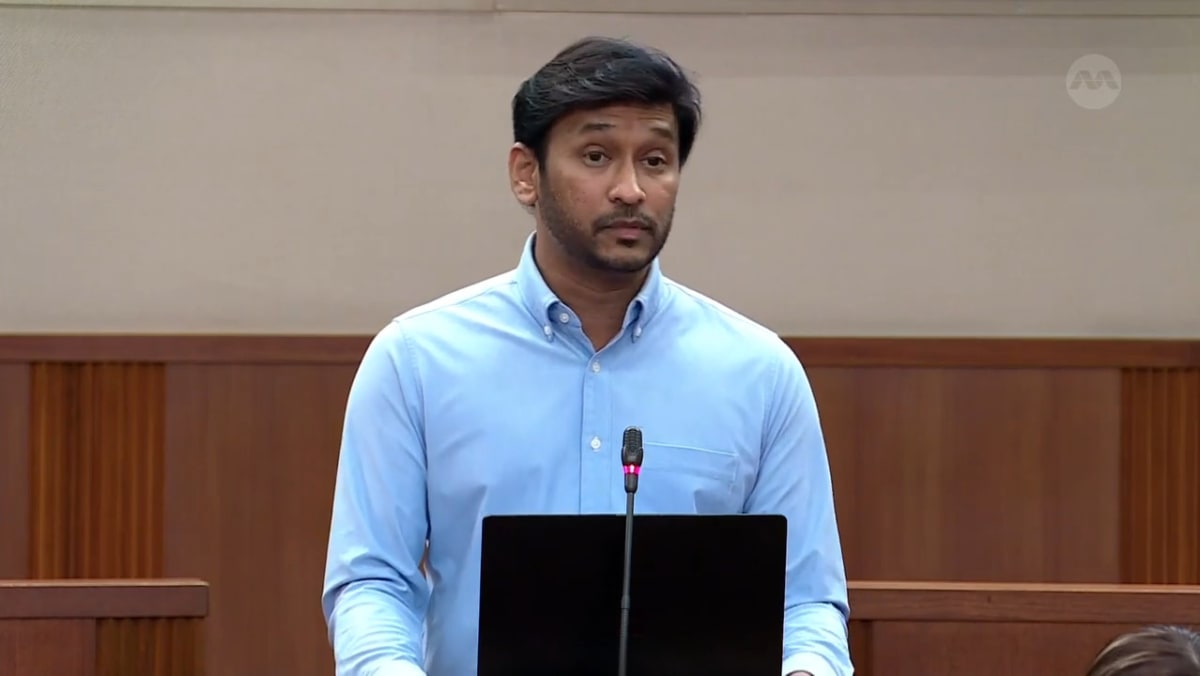
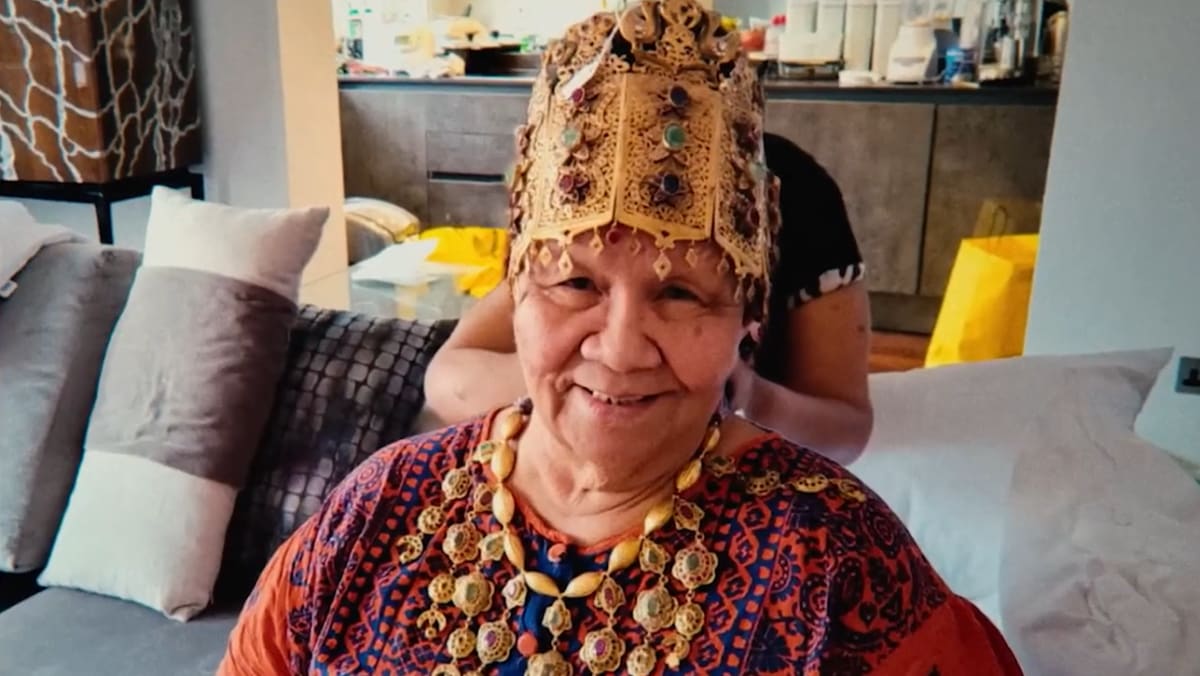
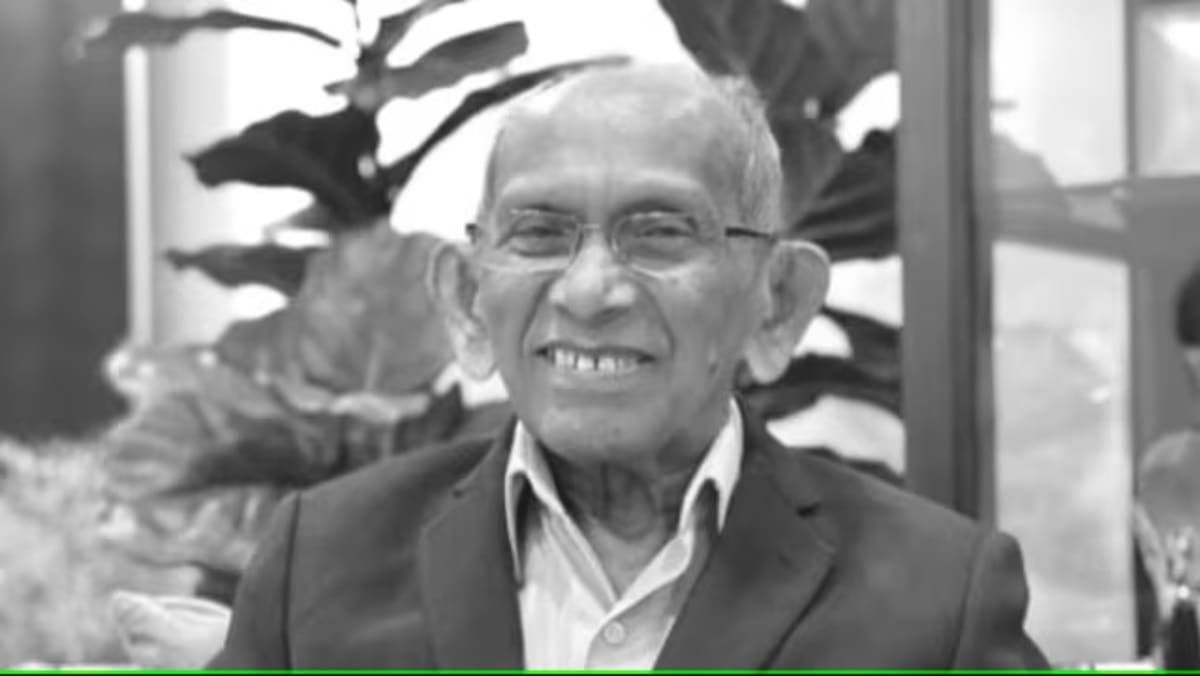
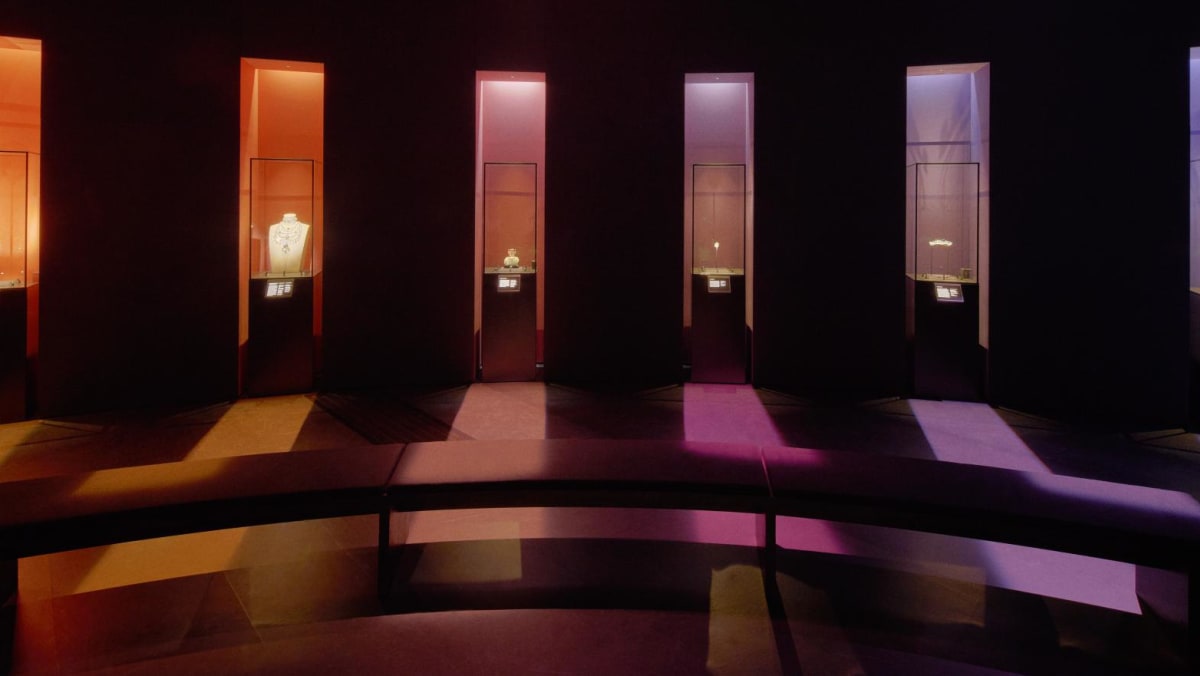
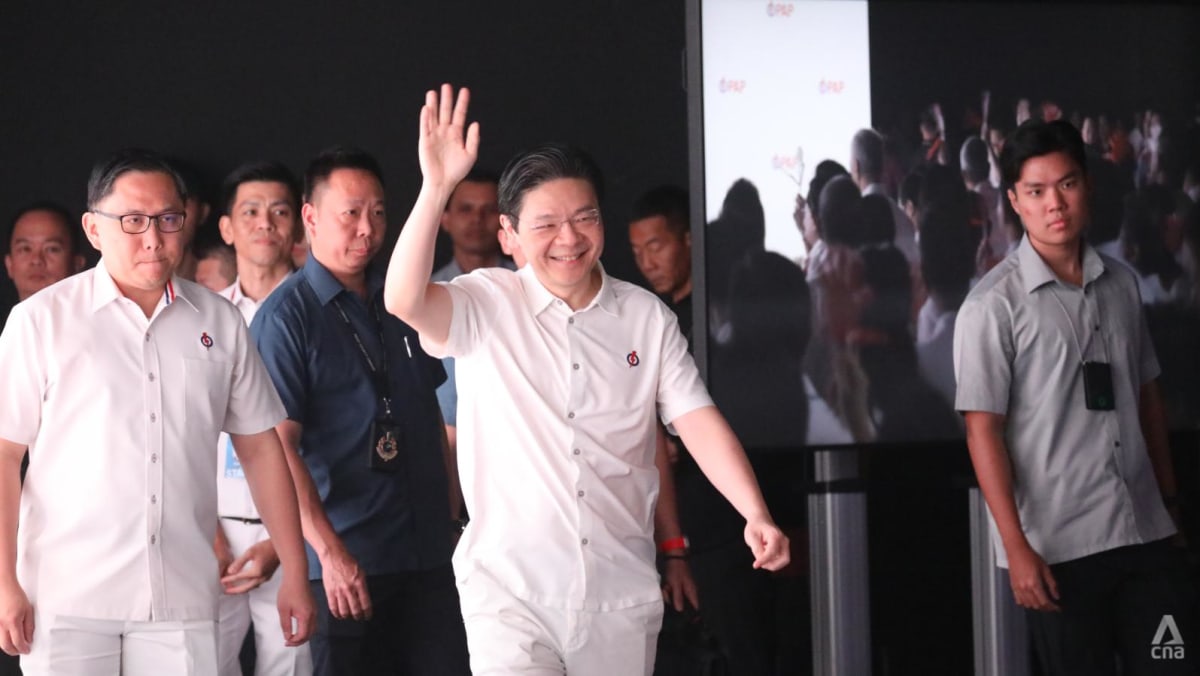
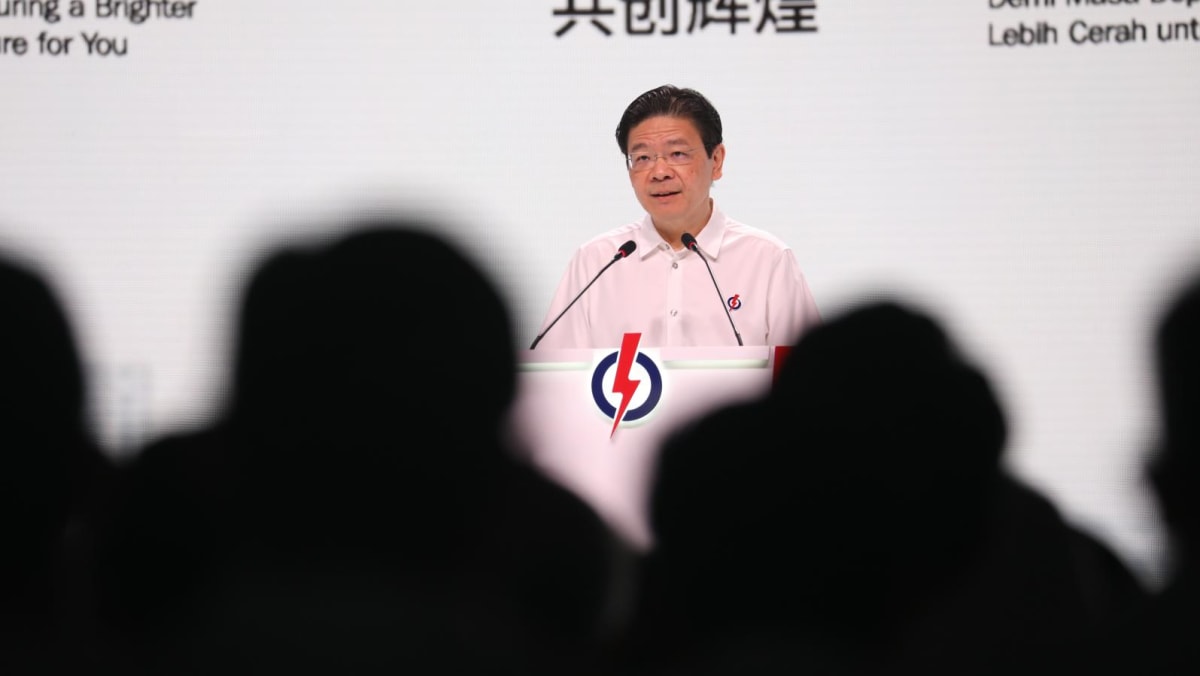
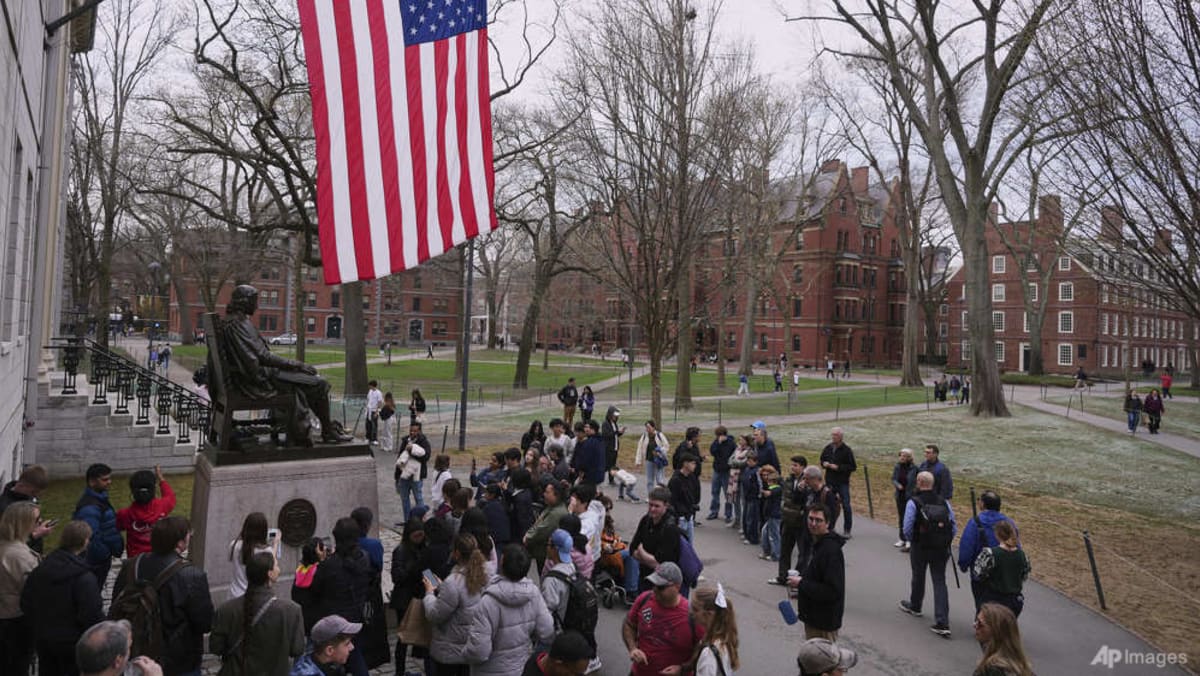
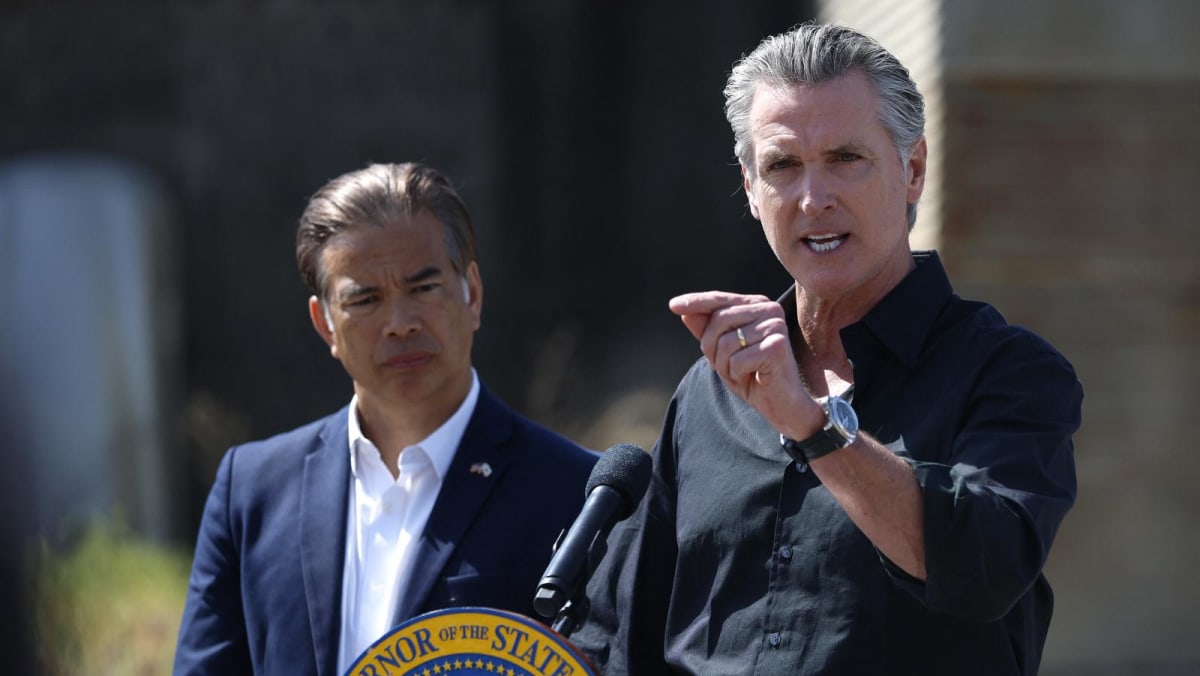


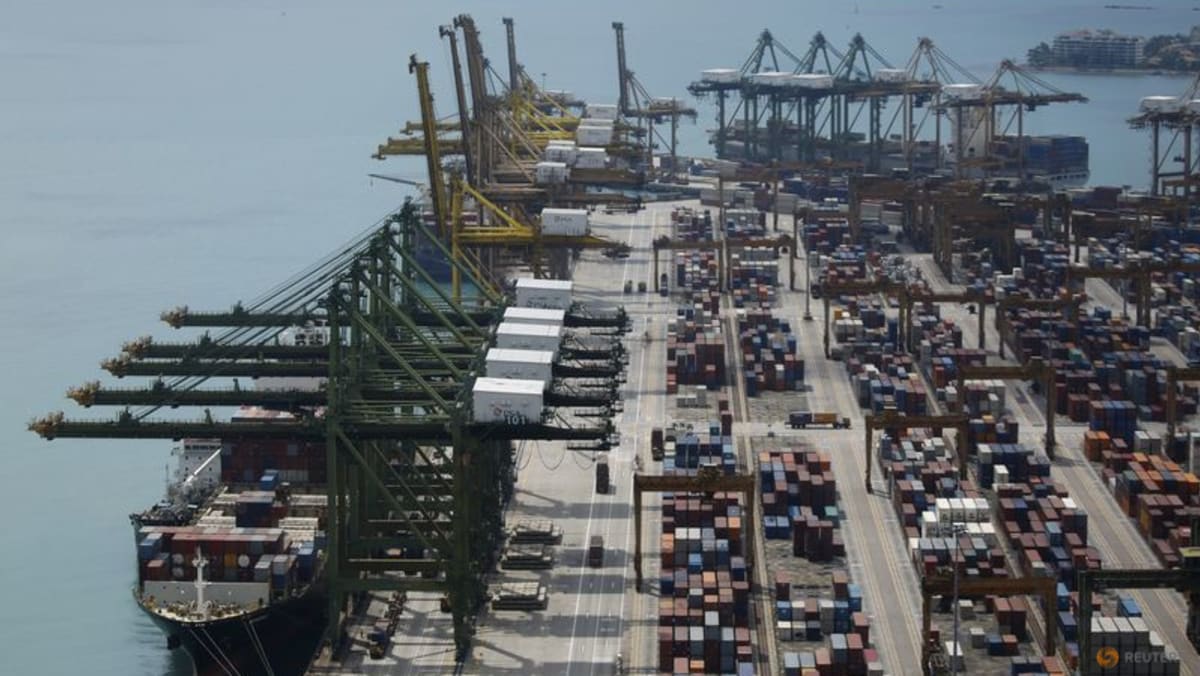
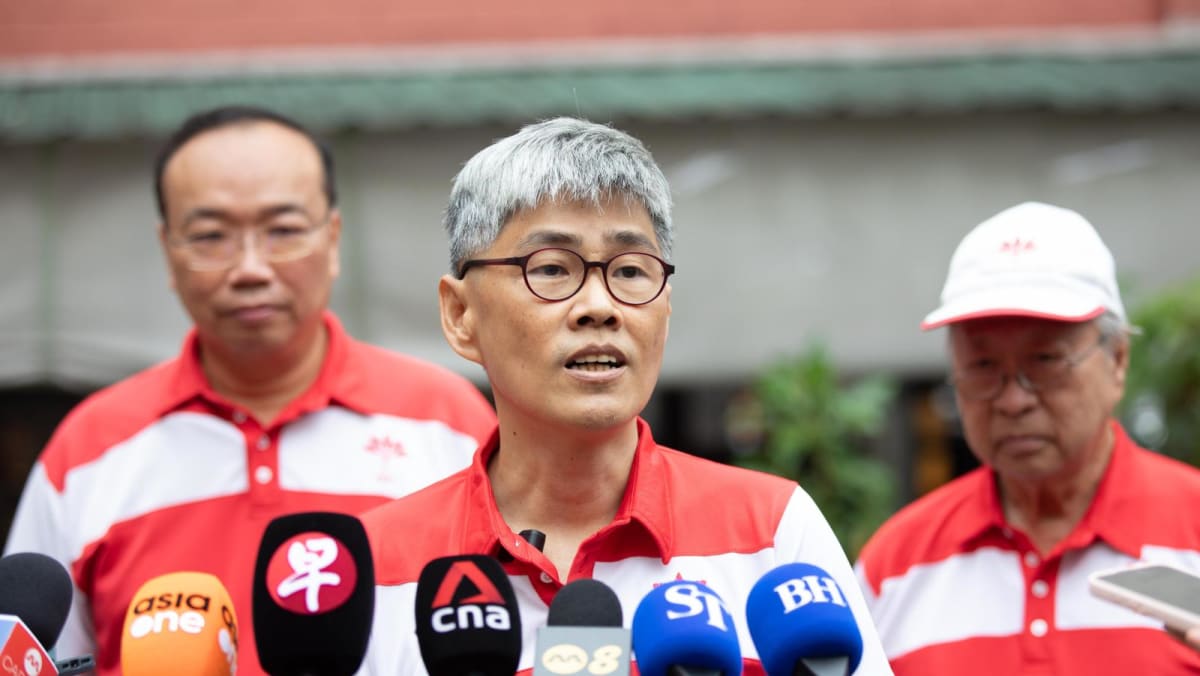
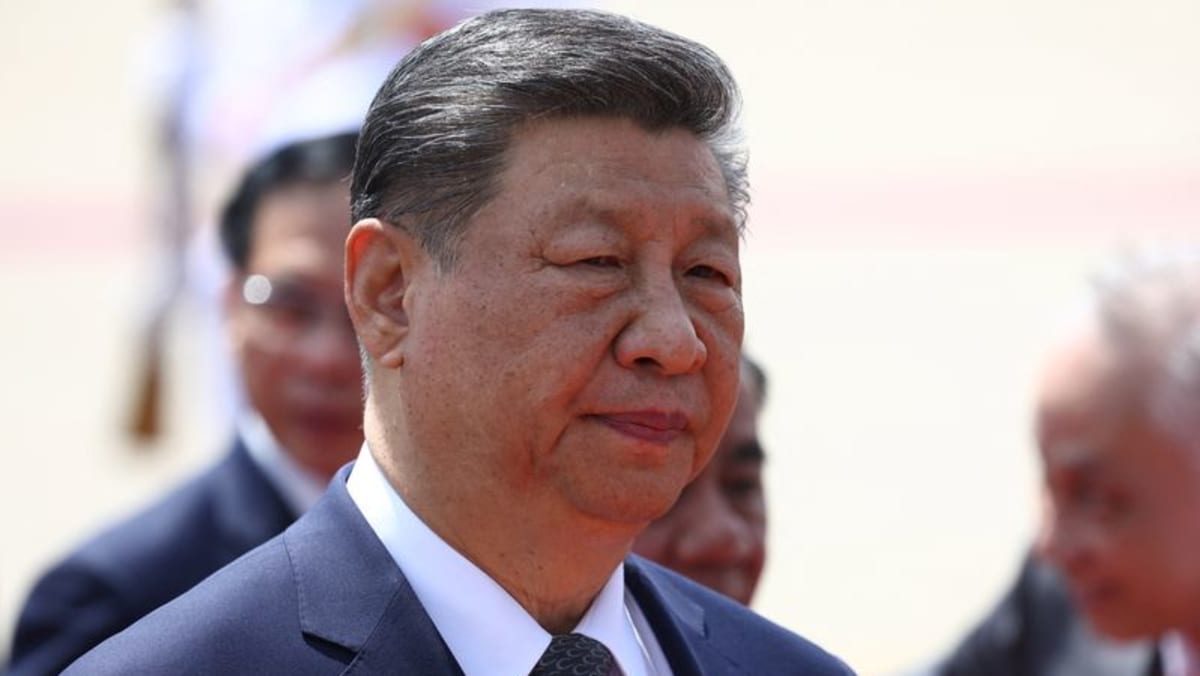
.png?itok=erLSagvf)
